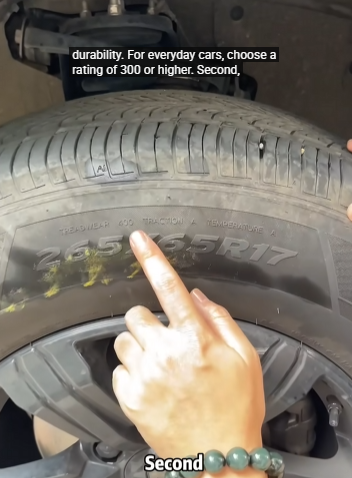
Buying new tires for your car can be a daunting experience, especially if you’re trying to balance quality and cost. High-quality tires are essential for your vehicle’s safety, performance, and fuel efficiency. However, that doesn’t mean you have to spend a fortune. With a little planning, research, and patience, you can score a great deal on top-tier tires. In this article, we’ll explore smart strategies that help you buy high-quality car tires at a low price.
1. Understand What You Need
Before you begin shopping, it’s important to know what type of tires your vehicle requires. Check your car’s owner manual or the sidewall of your existing tires for size specifications. You’ll see numbers like 225/50R17 – these indicate the width, aspect ratio, and rim diameter.
Next, consider the type of driving you do:
- All-season tires: Good for year-round use in most climates.
- Summer tires: Better grip in warm, dry, or slightly wet conditions.
- Winter tires: Ideal for snow and icy roads.
- Performance tires: Designed for speed and better handling.
- Off-road or all-terrain tires: For trucks or SUVs that go off-road.
Buying the right tire type helps avoid overpaying for features you don’t need or compromising safety by buying the wrong kind.

2. Set a Budget – But Be Realistic
Set a price range that fits your budget, but keep your expectations realistic. Cheap tires are not always good tires. Aim for a balance – you want the best value, not just the lowest price.
A good approach is to look at cost-per-mile rather than just the upfront cost. A $100 tire that lasts 80,000 miles is a better investment than a $60 tire that wears out after 25,000 miles.
3. Research Brands and Reviews
Not all tire brands are equal. Big names like Michelin, Goodyear, Bridgestone, and Continental are known for consistent performance and long warranties. However, there are also some lesser-known brands that offer excellent value.
Visit tire review websites and forums like:
- Tire Rack
- Consumer Reports
- Car Talk
- Reddit’s r/cars
These platforms offer comparisons, customer feedback, and professional ratings based on wet/dry performance, tread life, noise, and fuel economy. Look for tires that consistently score high in the features you care about most.
4. Shop Online and Compare Prices
One of the best ways to find deals is to shop online. Websites like:
- Tire Rack
- Discount Tire Direct
- Amazon
- Walmart
- SimpleTire
…often offer better prices than local dealers. You can compare tire models, read reviews, and see what rebates or promotions are available.
Some online stores even include free shipping, and some will ship directly to a local installer near you. Be sure to check if the total cost (including shipping and installation) still comes out lower than buying locally.

5. Look for Rebates and Promotions
Tire manufacturers regularly offer rebates and seasonal discounts. These may include:
- Cash-back promotions
- Buy 3, get 1 free
- Gift cards with purchase
- Discounts for military or first responders
Check both manufacturer websites and retailer promotions. Some promotions are instant, while others require submitting a claim form online.
6. Consider Buying Used or Take-Off Tires
This isn’t always ideal, but it can be a great money-saver if done carefully.
- Used tires: Check tread depth, signs of damage, and age (using the DOT code on the sidewall). Don’t buy anything more than six years old or with uneven wear.
- Take-off tires: These are nearly new tires removed from new vehicles during customization. They’re often sold at a steep discount and can offer significant value.
Local tire shops, junkyards, or online marketplaces like eBay or Facebook Marketplace are good places to search.
7. Use Price-Matching Policies
Some retailers, especially larger chains, offer price-match guarantees. If you find a lower price elsewhere (including online), they may match or even beat it. Bring proof of the advertised price and ask before purchasing.
Retailers like Discount Tire and Walmart Auto Center often offer this feature.

8. Buy During the Right Season
Timing your purchase can make a difference. Tire sales typically happen:
- Spring and Fall: These are the most common times for tire deals as drivers prepare for seasonal changes.
- Black Friday / Cyber Monday
- End-of-year clearance sales
- Manufacturer anniversary events
Buy your tires when demand is lower to avoid peak-season pricing.
9. Negotiate at Local Tire Shops
Local, independent tire shops can often match online prices or offer package deals. Don’t be afraid to negotiate. Ask questions like:
- Can you throw in free installation or tire rotation?
- Will you match this online price?
- Do you offer any discounts for cash payments?
Being polite but assertive can result in some valuable extras or lower costs.
10. Factor in Installation and Maintenance Costs
A cheap tire can end up expensive if installation and service fees are high. Always ask for the “out-the-door” price, which includes:
- Mounting and balancing
- Tire disposal
- Alignment (if needed)
- Taxes and service charges
Some shops offer free lifetime rotations, balancing, or flat repair if you buy from them – this adds long-term value.

11. Use Credit Card Rewards or Financing
If you’re using a credit card, check if your card offers cash-back or reward points on automotive purchases. Some tire retailers also offer interest-free financing options that let you spread out payments over a few months.
Just be cautious – don’t overextend yourself. Financing only helps if you can pay it off before interest kicks in.
12. Maintain Your Tires to Extend Their Life
Once you buy your tires, protect your investment by taking care of them:
- Check tire pressure regularly
- Rotate tires every 5,000–8,000 miles
- Balance and align your wheels
- Avoid sudden stops and high-speed cornering
- Inspect for punctures and uneven wear
Well-maintained tires last longer and save you from buying replacements sooner.
Conclusion
You don’t need to choose between safety and savings when it comes to buying car tires. By researching, comparing prices, timing your purchase, and exploring all your buying options, you can find high-quality tires at an affordable price. Keep in mind that the best deal is not always the cheapest product, but the one that offers the most value for your money over time. So, take your time, do your homework, and drive away with confidence—and cash still in your pocket.



